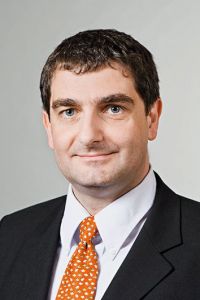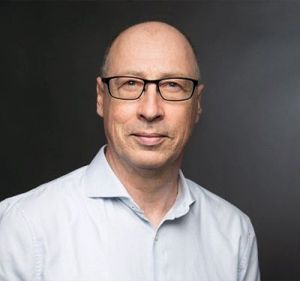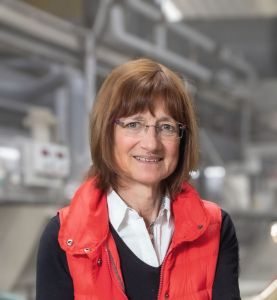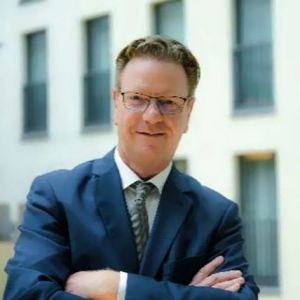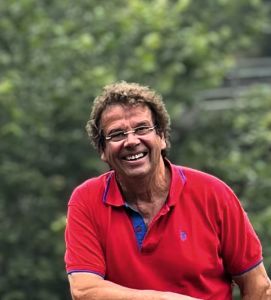The problem of young talent in the industry is becoming ever more acute. What is the situation, what is being done and what still needs to be done? An analysis.
The electroplating and surface technology sector has been battling the shortage of young talent for many years now, but the bad news is piling up: Electroplating companies are often unable to find successors, the relevant vocational schools in the electroplating hotspots of Solingen, Schwäbisch Gmünd and Nuremberg are complaining about low trainee numbers, applications for training in the presumably still around 1500 electroplating and anodizing companies with their approximately 50 to 70 thousand employees are continuing to fall, as are student numbers at colleges and universities, such as Aalen University and Ilmenau University of Technology.
From 2023 to 2024, the training rate for surface coaters fell by a further 11 percent
In short, the downward demographic spiral has an unavoidable grip on the industry - just like most industrial and economic sectors in Germany. Looking at the economy as a whole, the demand for young trainees last matched the supply of training places in Germany in 2017. Figures from the Federal Statistical Office for 2023 already showed 87,874 unfilled training places. 519,399 vacancies were offset by 431,552 new training contracts. A similar picture can be seen at colleges and universities in the STEM subjects (science, technology, engineering and mathematics): The number of students here fell by 5 percent over the past ten years to 308,000 (2023).
Forecasts are modest
And the prospects of the trend reversing are rather modest: In general, the number of people in employment will fall slightly over the next 15 years - by around 1.6 million people in Germany - even with high net immigration. If fewer people immigrate from abroad, the number of people in employment in Germany could fall by almost five million. The shortage of skilled workers is therefore a problem for society as a whole that can only be mitigated with the help of various levers, such as immigration, digitalization and automation as well as clever recruitment, so that German SMEs, among others, do not completely lose their strong global position. In 2024, only 387 new contracts for training as a surface coater and 633 for training as a process mechanic for coating technology were concluded in the electroplating and surface technology sector. The figures have been falling sharply since 2018. From 2023 to 2024, the training rate for surface coaters fell by a further 11% and for process mechanics for coating technology by 3%.
Difficult search for successors at electroplating companies
The next generation of managers is a particularly important hinge in the structure of the electroplating industry because it is strongly characterized by medium-sized companies: If an agreement with a new owner is not reached or no one can be found to take over, electroplating or anodizing companies close, employees lose their jobs and the industry shrinks. The orders are then often taken over by neighboring electroplating shops. This is the case for Michael Kriebel, Managing Director of Kriebel Metallveredelung in Kirschfurt, who is also currently looking for a successor for his electroplating business. The 58-year-old's company chrome-plates swivel brackets for supermarkets and zinc die-cast series parts, among other things. In 2021, Kriebel contracted coronavirus with a severe course. He still has health problems as a result. His business is also suffering from the decline in demand caused by the difficult economic situation in recent years. Although he is now taking on orders from a competitor, high electricity costs and bureaucratic red tape make it difficult for him to continue running the business, even though it is flexible and chrome-plates aluminum, steel, stainless steel, brass and die-cast zinc in Kirschfurt. He considers the demands of self-employment to be higher today than in the past - and continues to hope for a resilient successor with technical expertise.
Andreas Hoppe from Hoppe Metallveredelung in Schenefeld near Hamburg has fared better. He has now found a 42-year-old master electroplater to take over his anodizing business. However, he also complains about high wage, electricity and material costs as well as a shortage of skilled workers and the many hours of work that managers of companies in the sector have to invest these days in order to earn a lower private income than in the past. In view of these conditions, he was no longer able to convince his children, who work in the company, to follow him as head of electroplating.
Michael Heering's engineering office, which offers technical advice on maintenance materials and was known in the past for its expertise in bath heating, special parts and consumables such as filters and filter paper, will not continue. His children have no interest in electroplating and no external successor has been found. Now Heering is closing the office.
Three companies that reflect the situation in a section of the industry. The mood is moderate, the competitive and general conditions are tough, demographics are striking mercilessly. But hope dies last. Entrepreneurs who want to prepare for a succession at an early stage can find out more at the industry's annual surface days at the Unternehmerforum.
Interest in studying is weakening
"Germany needs a jolt," demands Andreas Bund, Professor of Electrochemistry and Electroplating at Ilmenau University of Technology, quoting former German President Roman Herzog, who used this phrase in a speech in 1997. Just as entrepreneurship is too strenuous for many people today, strenuous technical studies are also avoided, he states. This needs to change, he says, and there needs to be a renewed focus on STEM subjects in Germany as an industrial nation. Originally, around ten new students started in his subject each semester, but today the number is significantly lower. The situation is the same in electrical engineering and materials science, he reports. He sees social discourse as a significant cause. Interest has shifted from chemistry and technology to subjects such as media and marketing. According to him, there is no lack of commitment from the industry: students are virtually guaranteed employment after graduation, are allowed to attend industry conferences free of charge during their studies and also have a good chance of receiving a scholarship.
However, support from the federal states for technical subjects, including surface technology, is also crumbling and exacerbating the situation for young talent in the industry, as an example from Aalen University shows. Funding, some of which was raised by the university itself, is being reallocated to other university locations because the number of students is declining. "Overall, we are losing out as a university because we are too technical," says Prof. Timo Sörgel, who heads the "Materials for Sustainability" course at Aalen University. The teaching atmosphere there used to be very good with small study groups. Now jobs are under threat and Prof. Sörgel fears that the department could one day be closed - with probably irreversible consequences for teaching and research in the region.
Examples from other sectors show that it is still worth investing in the minds of young technical talent in Germany: Isar Aerospace, which was founded by a group of students at the Technical University of Munich and aims to launch European satellites into space, has just received significant funding. Four German start-ups with close links to the German university landscape that want to realize nuclear fusion are also being supported. Politicians have even formulated the goal that the first fusion reactor should be located in Germany. And Germany is also an important location for research and development in the field of quantum computing, in which considerable sums are being invested. It does work - if you want it to! And German electroplating and surface technology is an indispensable production and research area for future technologies such as electrolysers, battery technology and much more, which should not be neglected in the course of focusing on a few technologies.
Training: listlessness in the SME sector
However, the importance of the industry has not yet become sufficiently widespread in society: "There is still too little awareness of the important role that surface technology plays today, particularly in terms of environmental protection and sustainability, and the potential for innovation that lies hidden here," Katja Hibschenberger, Head of Global Human Resources at SurTec Deutschland GmbH, confirmed this observation in a recent interview with the magazine Metalloberfläche.
"There is still too little awareness of the important role that surface technology plays today, particularly in terms of environmental protection and sustainability..."
The lack of awareness of surface technology, especially when it comes to future technologies, also affects vocational schools in particular, which are experiencing the lack of young talent in electroplating first hand. Schwäbisch Gmünd (more on this in Galvanotechnik 5/2025, p. 602 ff.) and Solingen are weakening, as is the Semper School in Nuremberg, where Ulrich Ludwig teaches electroplating. Before moving into teaching, he initially worked as a chemical-technical assistant (CTA), but then quickly switched to industry and became acquainted with electroplating, to which he remained loyal. In his experience, electroplating plants today are generally modern and clean and take the issue of occupational health and safety very seriously. He has noticed an increasing reluctance among medium-sized companies to offer training at all.
According to the entrepreneurs, this is due to the poor commitment of trainees. He himself experiences the whole spectrum of motivation among his students: from the first-year student to the student who demonstratively puts his head on the desk in front of him. Currently, the first-year intake consists of just 20 students, the middle class of 28, who have been merged from two classes, and the final year of 22 prospective surface coaters, including nine lateral entrants who are receiving a kind of crash course. A ray of hope: In the meantime, some girls have also joined the classes, who are generally very committed.
Female specialists and managers as a solution?
Speaking of girls and women: Couldn't companies in the sector also make more use of female specialists and managers to fill the gaps in the workforce? Dr. Elke Moosbach, head of the ZVO women's network Female (Sur)Faces, agrees in principle. However, the will alone does not move mountains, just look at the moderate interest in surface finishers at the nationwide Girls Day. Although Galvanotechnik magazine recently reported that IMO Oberflächentechnik was able to welcome four young women to Girls Day, many other surface finishers, including Moosbach's company Moosbach & Kanne in Solingen, came away empty-handed. When it comes to management positions, Dr. Moosbach believes that the low proportion of women in management positions is primarily due to social prejudices. For example, that women are less competent in technical areas and management positions. Her appeal: "We urgently need to do away with this prejudice!" Companies with women in management positions are characterized by competence, employee satisfaction and a wealth of ideas. "These are skills that women bring to the table," she emphasizes.
Listening to Dr. Moosbach, one understands that old social structures must first be broken down before change can take place. For example, women in the industry are particularly likely to be found where there are professional opportunities for part-time work. And the concerns of entrepreneurs that management positions cannot be combined with motherhood must first be overcome, for example with a kind of job sharing in management positions, ideally with two women, because "men don't like to take a back seat once they have achieved their career goal". Dr. Moosbach, who is also active on the board of the Zentralverband Oberflächentechnik e. V. (ZVO), sees a first ray of hope in the so-called ZVO Trainee Challenge, which takes place every year. As part of the competition, trainees shoot 90-second videos in which they record what they love about their job. Recently, 13 trainees took part, including two women - and one of them won the challenge.
TO THE INFO
Young talent initiatives of the ZVO
- Social media activities (Instagram, LinkedIn, Xing) to make the profession of surface coater and process mechanic for coating technology more attractive, incl. #AzubiChallenge video competition on Instagram (ZVO 2.0 initiative), posting pool for advertising apprenticeships, etc.
- Career site glanzvolle-karriere.de incl. list of potential training companies and list of paid internships for students of electroplating and surface technology or companies that provide support for student research projects and final theses
- Participation in the career guidance initiative "Damit du Bescheid weißt" ("So that you know") of Mehr Zeit für Kinder e.V. Jointly developed teaching materials on the surface coater apprenticeship (m/f/d) are sent to secondary schools.
- ZVO Master's scholarship: Since 2018, up to three scholarships per year for a Master's degree course with a focus on electrochemistry and electroplating. The ZVO co-initiated the endowed professorship.
- Female (Sur)Faces projects for more young female talent, e.g. role model campaign, support for companies participating in Girls' Day, mentoring program, etc.
- Seminars, workshops, congresses, events for further training (ZVO basic seminar, surface days, etc.)
- Activities of the German Society for Electroplating and Surface Technology (DGO) such as specialist and master craftsman courses and honoring the best graduates of the year as surface coaters
ZVO: bouquet of young talent initiatives
The trainee challenge is not the only ZVO initiative. The association offers a whole range of young talent initiatives designed to provide information about the profession and make it more attractive. The following information box provides an overview.
In view of the shortage of skilled workers, the ZVO has been dealing with the problem for some time. Unfortunately, due to the economic situation, skilled workers are currently being made redundant rather than being sought, they say. This means that the difficulties in recruiting new talent are being overlooked for the time being, but are likely to become all the more pressing at another time. The association will remain active, but is aware that traditional methods of recruiting skilled workers are becoming increasingly ineffective and that modern and sustainable personnel concepts are increasingly in demand.
As is often heard, the profession of surface coater is anything but actively advertised in the employment offices and if so, then with outdated job profiles. Here, the ZVO relies on the joint efforts of companies in the sector with continuous approaches to their employment offices, for example with invitations from careers advisors to their own company to get to know the real profession on offer. Even more important, however, is early and proactive advertising at schools and universities to get young people interested in STEM professions again.
Take countermeasures at grassroots level!
This is probably also the key to solving the problem of skilled workers. Somewhere along the road to the future, enthusiasm for how the world works must have been lost. We all use smartphones, small computers that combine internet, communication, games and entertainment in one small device. The enthusiasm for these all-purpose devices is huge. But who, apart from a few technology nerds, still knows exactly how they work? Digitalization and artificial intelligence will reduce the number of real experts even further and interest in science and mathematics is declining in schools. Computer science is still quite popular. In order to turn the tide, countermeasures need to be taken at grassroots level. With teachers who have the pedagogical skills to get young people excited about technology and the forces of nature.
Somewhere along the road to the future, enthusiasm about how the world works must have been lost
Erich Arnet, Managing Director of the Center for Surface Technology Gmünd (Z. O. G.), is someone who has long been passionate about the subject and who will continue to be involved in training and further education in the industry in his retirement, which has just begun. As part of his commitment to the Z.O.G., he recently launched the Z.O.G. Plus project with the aim of finding and motivating young talent. He has also taught chemistry at a Waldorf school, where he also promoted electroplating and electrochemistry. The well-known electroplating technician will continue his commitment to the industry. Ultimately, however, schools must do their homework when it comes to STEM subjects - the PISA studies have made it clear that it is high time for action. The famous jolt through the country can no longer be delayed!


